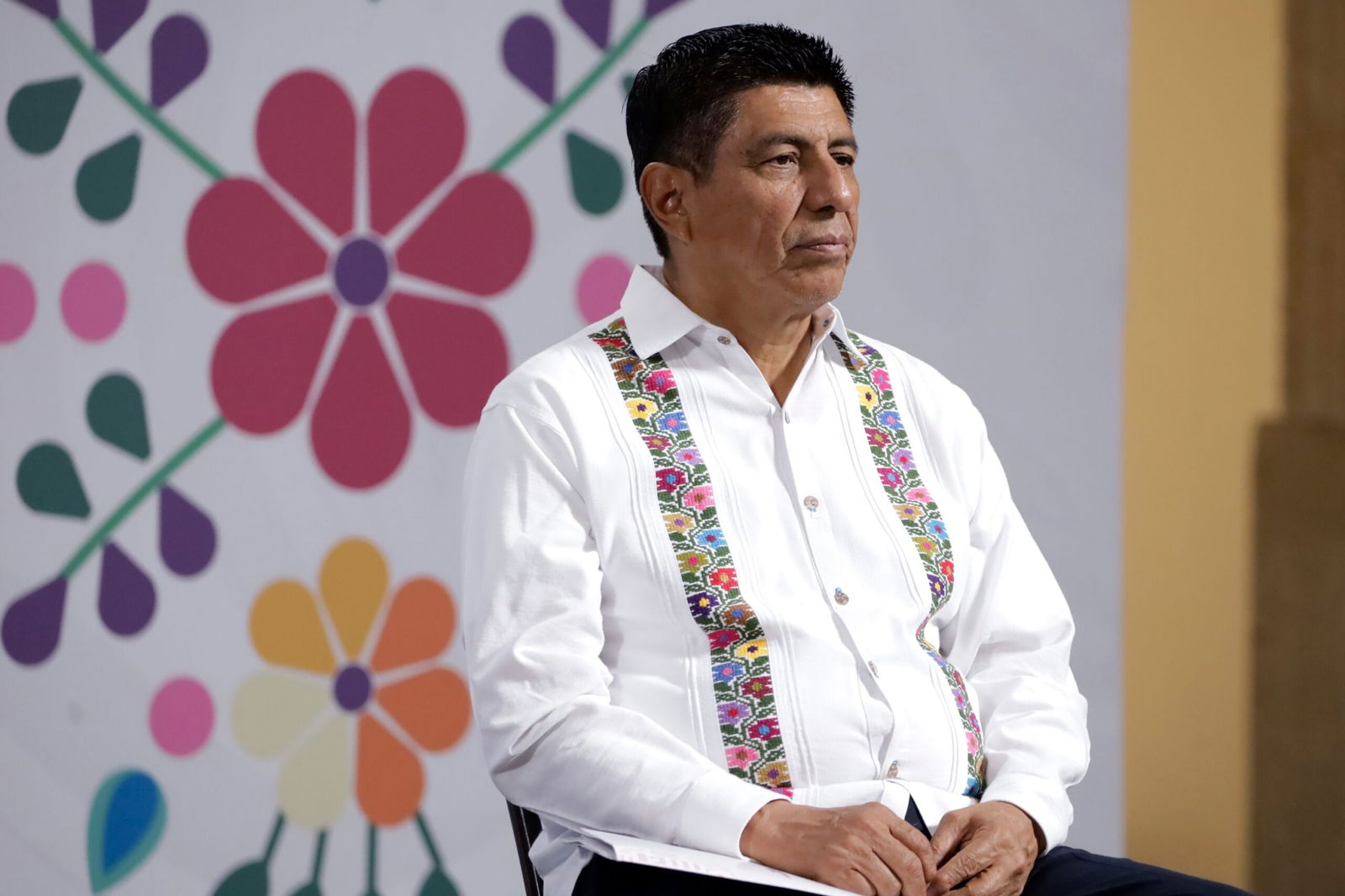Mexican state accuses Adidas of cultural appropriation over new shoe, threatens legal action

The Governor of the state of Oaxaca
By Isa Cardona, Veronica Calderon, Michael Rios, CNN
(CNN) — The Mexican state of Oaxaca is threatening legal action against Adidas, accusing the footwear company of cultural appropriation over a newly unveiled shoe that resembles a traditional handmade sandal.
The “Oaxaca Slip-On,” billed as a collaboration between American designer Willy Chavarria and Adidas Originals, features a woven leather surface, open heel, and thick rubber sole – and, in the eyes of the Oaxaca government, bears more than a passing resemblance to the “huarache” handmade sandal from the Oaxacan community of Villa Hidalgo Yalalag.
Oaxacan Governor Salomón Jara Cruz on Wednesday accused the company of copying the Yalalag design without asking permission or crediting the community. He also demanded that Adidas withdraw the shoe, engage in talks with the Indigenous community and publicly recognize the Yalalag as the originators of the design.
“This is not just a design, it is about the culture, history and identity of an original (people) and we will not allow it to be treated as merchandise,” he said in a video posted on X.
He pledged “legal support” for Villa Hidalgo Yalalag, and said he had already spoken with members of the community about taking action against the footwear company.
Adidas did not immediately respond to a CNN request for comment. Neither has it issued a public statement addressing the controversy.
One option for the Oaxacan government would be to file a formal complaint with the Instituto Mexicano de la Propiedad Industrial (IMPI), Mexico’s federal agency for intellectual property protection.
Were the IMPI to rule in favor of Oaxaca, it could potentially block Adidas from selling the shoe in Mexico.
The shoe has not yet been released for sale to the public, but images of it have circulated widely online.
Chavarría is known for incorporating Mexican-American identity into his fashion work. CNN has reached out to him for comment.
The dispute adds to a growing number of cases in Mexico where Indigenous communities have accused international designers and brands of replicating their work without permission.
In recent years, companies like Zara, Anthropologie and Patowl have faced similar backlashes over designs or motifs perceived as too similar to traditional works.
In response, Mexico has passed legislation punishing unauthorized use of Indigenous cultural expressions with hefty fines and prison sentences.
The-CNN-Wire
™ & © 2025 Cable News Network, Inc., a Warner Bros. Discovery Company. All rights reserved.



